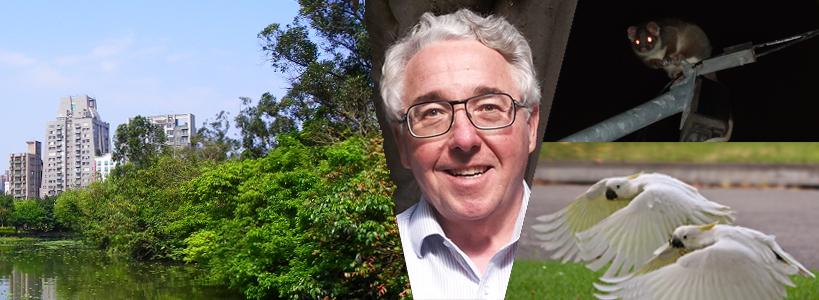Creating Green, Healthy, Resilient and Liveable Cities and Towns

Associate Professor Mark McDonnell
Director, Australian Research Centre for Urban Ecology
Royal Botanic Gardens Victoria
The growth of cities and towns is one of the most serious ecological problems currently facing Australia and the world.
The increase in the number of people living in cities and towns, coupled with the magnitude and intensity of human activities has resulted in significant impacts to local, regional and global environments. The creation and expansion of cities produce new types of land-cover, which typically result in the loss of native habitats along with associated increases in impermeable surfaces. These changes in land-use result in habitat loss and landscape fragmentation, toxification of the biosphere, loss of ecosystem function, invasion of exotic species and the loss of native biotic diversity.
These impacts are most evident in major cities, but are also occurring in smaller towns throughout Australia. The daily activities of humans also create novel disturbance regimes that result in new selection pressures on Australia’s biota. Over the next 20 years, the predicted increases in the number and size of human settlements, especially in developing countries, coupled with the predicted changes in climate have created an unprecedented call for scientific information to guide management strategies and mitigation options in order to create resilient, green, healthy, liveable cities and towns in the future. Understanding the impact that urbanisation has on the ecology of cities will help to identify measures that can be taken to minimise the detrimental effects of urbanisation.
About the Presenter:
Mark McDonnell is the Director of the Australian Research Centre for Urban Ecology of the Royal Botanic Gardens Victoria which is located at the University of Melbourne. His research interests range widely, and include the processes driving vegetation and ecosystem change, landscape ecology, the structure and function of urban ecosystems, and the conservation and management of urban biodiversity. In all these areas, he is concerned about bringing high-quality ecological data and the understanding of basic ecological processes to bear on problems of conservation and management of urban ecosystems. He has conducted pioneering research on the study of urban-rural gradients and the comparative ecology of cities and towns around the globe. Mark has authored or co-authored over 150 scientific papers, reviews, book chapters, reports and articles and has co-edited two books on the topic of urban ecology. He is the Editor-in-Chief of the Journal of Urban Ecology published by Oxford University Press.








